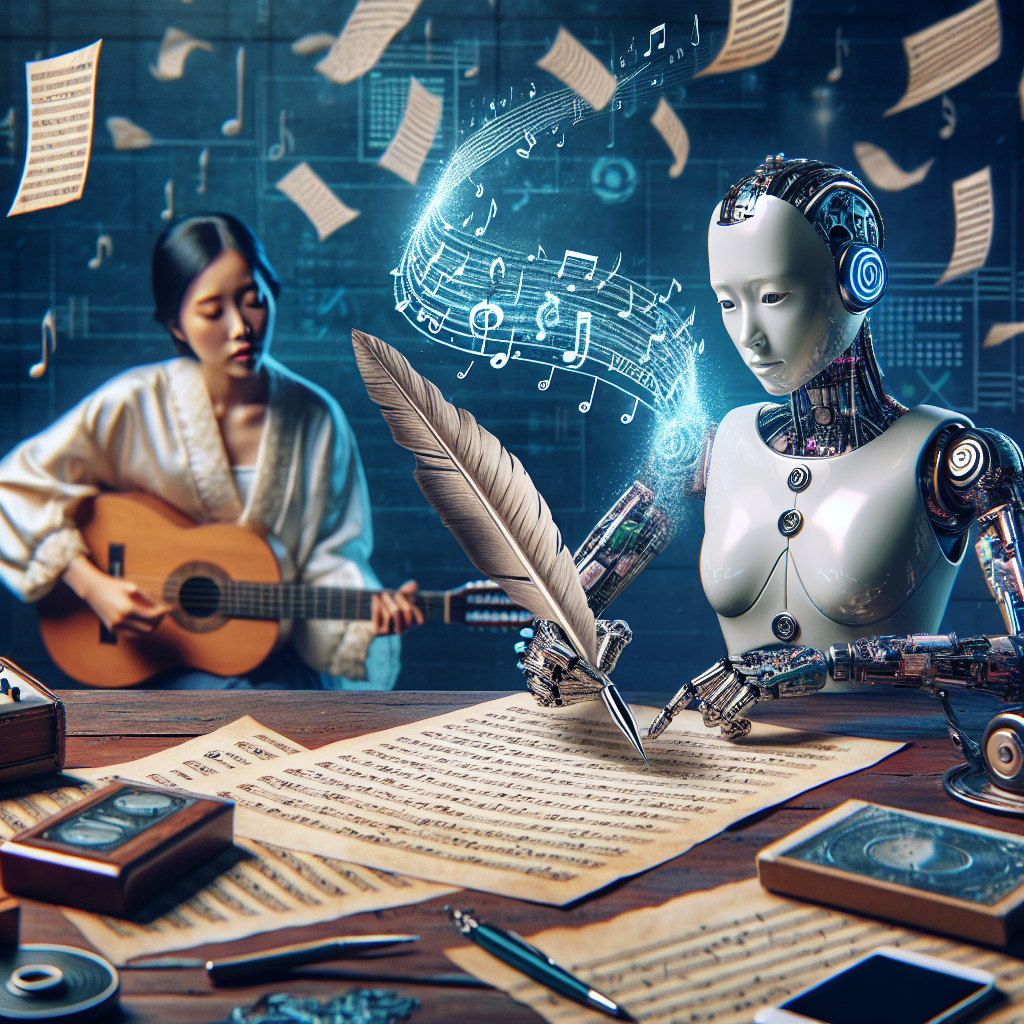Introduction
In today’s technological era, artificial intelligence (AI) is revolutionizing many industries, including music. From crafting melodies to formulating lyrics, AI-powered tools are reshaping the art of songwriting. Nevertheless, it prompts the question: can AI genuinely replicate the innate creativity of human artists?
The Rise of AI in Music
Over the last decade, AI technologies have progressed rapidly, achieving remarkable advancements in data analysis and machine learning. In the realm of music, AI can sift through extensive song datasets, uncovering patterns in melody, harmony, and rhythm. Tools like OpenAI’s MuseNet and Google’s Magenta enable users to generate compositions that mimic various styles, echoing the sounds of iconic artists or genres.
Benefits of AI in Songwriting
-
Efficiency and Speed: AI can create music in a fraction of the time it takes a human. This can streamline the creative process for musicians, facilitating rapid idea generation.
-
Inspiration: For many artists, AI can act as a catalyst for inspiration. By offering unique melodies or chord progressions, AI helps songwriters overcome creative hurdles.
- Collaboration: AI can serve as a collaborative partner. Musicians can input their ideas into AI tools, which can then enhance or refine those concepts, leading to innovative results.
The Limitations of AI
Although AI presents several advantages, it also comes with notable limitations that highlight its inability to completely replace human creativity:
-
Lack of Emotional Depth: Music is an intensely emotional art form, often reflecting human experiences. While AI can imitate sounds and structures, it lacks the emotional acuity required to create resonant music on a personal level.
-
Cultural Context: Human songwriters draw from their cultural backgrounds and personal narratives. In contrast, AI lacks a genuine grasp of societal subtleties, potentially resulting in compositions that feel empty or disconnected.
- Originality and Authenticity: AI-generated music often relies on established patterns and styles. This dependence can limit its ability to yield authentic creations, which often stem from human intuition, struggle, and diverse perspectives.
The Human Touch in Songwriting
Songwriting is a complex interplay of art and expression. Human composers engage their emotions, experiences, and cultural narratives to craft music that resonates with audiences. Exceptional songs often originate from deeply personal stories, societal reflections, or spontaneous bursts of inspiration. This authenticity is difficult for AI to replicate, as it functions based on data and algorithms rather than lived experience.
Case Studies: AI and Human Collaboration
There have been noteworthy collaborations between AI and humans demonstrating the potential for cooperative songwriting. Projects such as AIVA (Artificial Intelligence Virtual Artist) and IBM’s Watson Beat have produced remarkable compositions, with human artists providing the emotional depth that AI lacks.
For instance, the band Taryn Southern incorporated AI-generated tracks in their album “I AM AI.” While the AI contributed to the composition, Southern infused the emotional and lyrical depth necessary, illustrating that the best outcomes often arise from the fusion of human creativity and AI capabilities.
Conclusion
While AI is transforming the musical landscape and opening new creative pathways, it cannot entirely replace the emotional profundity and cultural value embedded in human songwriting. AI can stimulate and enhance creativity, but the essence of songwriting—anchored in emotion, experience, and authenticity—remains uniquely human.
Ultimately, the future of music creation may hinge not on choosing between AI or human creativity, but on discovering ways for both to coexist and collaborate. The synergy of silicon and spirit might usher in a new era of songwriting, enriched by both technological innovation and the enduring nature of human expression.

